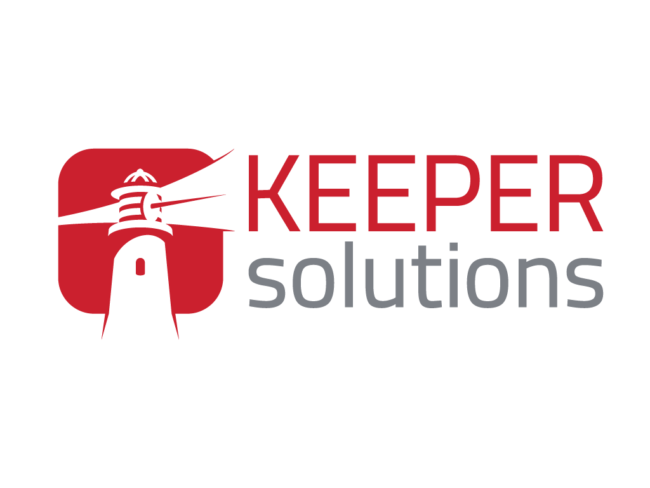Using Strategic Partnerships for FinTech Growth
In June, Keeper Solutions attended Fintech South in Atlanta. Produced by the Technology Association of Georgia (TAG), Fintech South is the southeast’s largest event dedicated to financial innovation. At the summit, some of the leading figures in FinTech share insights, innovations and trends related to the financial tech industry. One standout theme mentioned throughout the summit was the importance of using strategic partnerships to scale your business and meet the demands of the modern world.
Dozens of speakers took to the stage over the course of the two-day event; one of which was Marcilio Oliveira, Co-Founder and Chief of Growth at Sensedia. Oliveira discussed FinTech trends of the future and outlined four key challenges facing FinTechs in Atlanta. These included:
-
-
-
-
-
-
-
-
-
-
- A lack of strategic digital alignment, digital architecture and ecosystem innovations.
- A lack of resources and talent.
- The need to unlock data to get the right playground APIs.
- Delivering quick-win projects while building the platform strategy.
-
-
-
-
-
-
-
-
-
The solution for overcoming these challenges? Building strategic partnerships.
What is a Strategic Partnership?
A strategic partnership is a long-term business relationship focused on creating value for two or more organizations. In some business relationships, the focus is on one party extracting some benefit from the other. However, in a strategic partnership both parties are moving towards a shared goal. Their needs, values and aims are aligned and they succeed or fail as one. By its very nature, a strategic partnership is fuelled by trust, loyalty and longevity. While some companies engage in fleeting, transactional relationships, strategic partners carry one another forward on the path to shared growth.

Why Companies Use Strategic Partnerships
“The power of partnerships should never be underestimated. Nowhere is this truer than in the financial services industry, which is undergoing a significant shift as the ecosystem is increasingly dominated by partnerships rather than solo enterprises. Competition is intensifying, and we have already seen that tech giants Google, Apple, Facebook, and Amazon are all taking steps to break into the financial sector. Partnerships are critical to staying ahead in a crowded market: partnering with the best companies specializing in a niche area saves time and resources, improves product time to market, and helps to accelerate the business’ learning curve.”
Viktoria Ruubel, Chief Product Officer at IPF Digital
Of course, strategic partnerships are nothing new. For decades, companies have been combining forces for mutual gain. For an ambitious, growth-oriented company, partnerships can open up new audiences and allow companies to grow faster than they might do if going it alone. Strategic partnerships can create new opportunities for innovation and allow firms to quickly enhance their own capabilities and resources.
Below are some key reasons why a company might use a strategic partnership to grow the business.
1. To increase the customer base and open up new acquisition channels. Whether they are a start-up or more established firm, one of the biggest challenges facing any company is finding new acquisition channels, grabbing the attention of a new audience and growing its customer base. However, when you form a strategic partner with a company that is closely aligned with yours, you both gain access to an established pool of customers. Red Bull and GoPro have similar thrill-seeking audiences and have successfully used a strategic alliance to gain exposure to their partner’s customer base.
2. To open up new markets. As well as opening up new acquisition channels, a company can use a strategic partnership to move into previously unexplored markets.
3. To gain a competitive edge. To ensure success, a company needs to choose the right type of partnership. A winning strategy is to only partner with companies that are aligned with your values, morals and strategy. It is also crucial to think long-term. When this is done, both companies become stronger than the sum of their parts. This helps to strengthen the business and gain a significant competitive advantage.
One famous strategic partnership that provided both parties with a winning edge was the alliance between Apple and Mastercard that was unveiled in 2014. When Apple released Apple Pay for contactless transactions, it was destined to forever change the credit card industry. But, in order to get Apple Pay up and running, Apple first needed to partner with a credit card provider to support the technology. Mastercard could have railed against such a huge disruption to their industry. But instead it went with it and formed a strategic alliance. This allowed Mastercard to connect itself to a company on the cutting edge of innovation.
4. To gain access to new pools of talent. A key challenge for funded start-ups and scaling technology firms comes with finding the right type of talent and expertise needed to drive the company. By engaging in strategic partnerships, companies can lean on the other party’s resources and expertise. This, of course, is especially true when forming a strategic partnership with an outsourced software development company such as Keeper Solutions.
5. To enhance technology capabilities. One of the most common forms of FinTech collaboration is when a company provides its technology to a bank or financial institution. The financial institution gains access to state of the art technology while the FinTech can invest in adding new capabilities to their portfolio. That said, usually when a strategic partnership is formed, companies often gain access to new software systems, new technologies and a larger network of industry professionals to collaborate with.

Keeper Solutions FinTech Partnerships
At Keeper Solutions, we firmly believe in the power of strategic partnerships. Keeper Solutions has been delivering award-winning outsourced software development for more than a decade. Some of our best and longest running service partnerships have been with leading FinTech companies in Atlanta.
When we engage with a company, we don’t think of them as customers. We consider them partners and conduct ourselves as such. We try to align with companies that share our values, standards and work philosophies. If you are considering working with a software development partner, we believe it’s important to adopt a similar frame of mind.
For those that are considering an outsourced software development solution, here are our five top tips for ensuring operational success.



